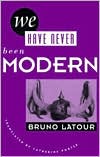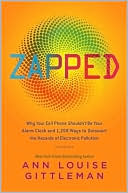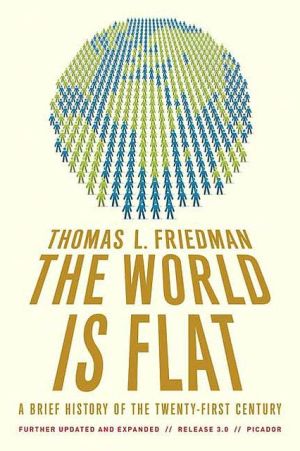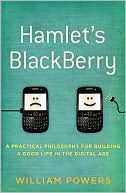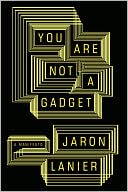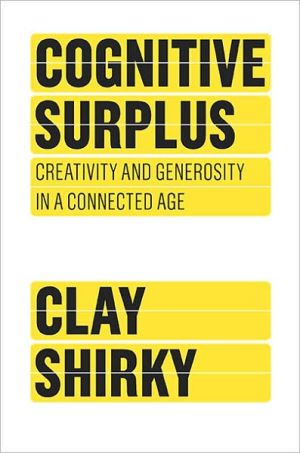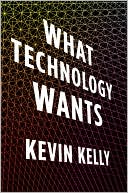We Have Never Been Modern
With the rise of science, we moderns believe, the world changed irrevocably, separating us forever from our primitive, premodern ancestors. But if we were to let go of this fond conviction, Bruno Latour asks, what would the world look like? His book, an anthropology of science, shows us how much of modernity is actually a matter of faith.\ What does it mean to be modern? What difference does the scientific method make? The difference, Latour explains, is in our careful distinctions between...
Search in google:
With the rise of science, we moderns believe, the world changed irrevocably, separating us forever from our primitive, premodern ancestors. But if we were to let go of this fond conviction, Bruno Latour asks, what would the world look like? His book, an anthropology of science, shows us how much of modernity is actually a matter of faith.What does it mean to be modern? What difference does the scientific method make? The difference, Latour explains, is in our careful distinctions between nature and society, between human and thing, distinctions that our benighted ancestors, in their world of alchemy, astrology, and phrenology, never made. But alongside this purifying practice that defines modernity, there exists another seemingly contrary one: the construction of systems that mix politics, science, technology, and nature. The ozone debate is such a hybrid, in Latour's analysis, as are global warming, deforestation, even the idea of black holes. As these hybrids proliferate, the prospect of keeping nature and culture in their separate mental chambers becomes overwhelming—and rather than try, Latour suggests, we should rethink our distinctions, rethink the definition and constitution of modernity itself. His book offers a new explanation of science that finally recognizes the connections between nature and culture—and so, between our culture and others, past and present.Nothing short of a reworking of our mental landscape. We Have Never Been Modern blurs the boundaries among science, the humanities, and the social sciences to enhance understanding on all sides. A summation of the work of one of the most influential and provocative interpreters of science, itaims at saving what is good and valuable in modernity and replacing the rest with a broader, fairer, and finer sense of possibility. Booknews All that separates us from our premodern ancestors, says Latour (sociology, U. of San Diego and the Ecole Nationale Superieure des Mines, Paris) is separation itself: our separation of society from nature, of human from thing, of science from culture. These distinctions, he says, are becoming increasingly harder to maintain, especially on ecological issues. Instead of trying, we should give it up. He suggests new ways to think about modernity, and offers an explanation of science that recognizes the connection between nature and culture. First published in French, 1991. Paper edition (unseen), $12.95. Annotation c. Book News, Inc., Portland, OR (booknews.com)
Acknowledgements1Crisis11.1The Proliferation of Hybrids11.2Retying the Gordian Knot31.3The Crisis of the Critical Stance51.41989: The Year of Miracles81.5What Does It Mean To Be A Modern?102Constitution132.1The Modern Constitution132.2Boyle and His Objects152.3Hobbes and His Subjects182.4The Mediation of the Laboratory202.5The Testimony of Nonhumans222.6The Double Artifact of the Laboratory and the Leviathan242.7Scientific Representation and Political Representation272.8The Constitutional Guarantees of the Modern292.9The Fourth Guarantee: The Crossed-out God322.10The Power of the Modern Critique352.11The Invincibility of the Moderns372.12What the Constitution Clarifies and What It Obscures392.13The End of Denunciation432.14We Have Never Been Modern463Revolution493.1The Moderns, Victims of Their Own Success493.2What Is a Quasi-Object?513.3Philosophies Stretched Over the Yawning Gap553.4The End of Ends593.5Semiotic Turns623.6Who Has Forgotten Being?653.7The Beginning of the Past673.8The Revolutionary Miracle703.9The End of the Passing Past723.10Triage and Multiple Times743.11A Copernican Counter-revolution763.12From Intermediaries to Mediators793.13Accusation, Causation823.14Variable Ontologies853.15Connecting the Four Modern Repertoires884Relativism914.1How to End the Asymmetry914.2The Principle of Symmetry Generalized944.3The Import-Export System of the Two Great Divides974.4Anthropology Comes Home from the Tropics1004.5There Are No Cultures1034.6Sizeable Differences1064.7Archimedes' coup d'etat1094.8Absolute Relativisim and Relativist Relativism1114.9Small Mistakes Concerning the Disenchantment of the World1144.10Even a Longer Network Remains Local at All Points1174.11The Leviathan is a Skein of Networks1204.12A Perverse Taste for the Margins1224.13Avoid Adding New Crimes to Old1254.14Transcendences Abound1275Redistribution1305.1The Impossible Modernization1305.2Final Examinations1325.3Humanism Redistributed1365.4The Nonmodern Constitution1385.5The Parliament of Things142Bibliography146Index154
\ BooknewsAll that separates us from our premodern ancestors, says Latour (sociology, U. of San Diego and the Ecole Nationale Superieure des Mines, Paris) is separation itself: our separation of society from nature, of human from thing, of science from culture. These distinctions, he says, are becoming increasingly harder to maintain, especially on ecological issues. Instead of trying, we should give it up. He suggests new ways to think about modernity, and offers an explanation of science that recognizes the connection between nature and culture. First published in French, 1991. Paper edition (unseen), $12.95. Annotation c. Book News, Inc., Portland, OR (booknews.com)\ \
